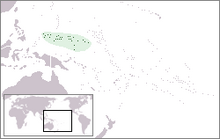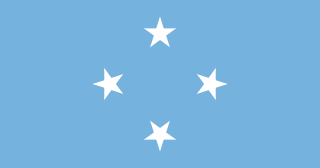
The Federated States of Micronesia, or simply Micronesia, is an island country in Micronesia, a subregion of Oceania. The federation consists of four states—from west to east, Yap, Chuuk, Pohnpei and Kosrae—that are spread across the western Pacific. Together, the states comprise around 607 islands that cover a longitudinal distance of almost 2,700 km (1,700 mi) just north of the equator. They lie northeast of Indonesia and Papua New Guinea, south of Guam and the Marianas, west of Nauru and the Marshall Islands, east of Palau and the Philippines, about 2,900 km (1,800 mi) north of eastern Australia, 3,400 km (2,100 mi) southeast of Japan, and some 4,000 km (2,485 mi) southwest of the main islands of the Hawaiian Islands.

Demographic features of the population of the Federated States of Micronesia include population density, ethnicity, education level, health of the populace, economic status, religious affiliations and other aspects. The indigenous population of the Federated States of Micronesia, which is predominantly Micronesian, consists of various ethnolinguistic groups. English has become the common language. Population growth remains high at more than 3%, but is ameliorated somewhat by net emigration.
This article is about communications systems in the Federated States of Micronesia.
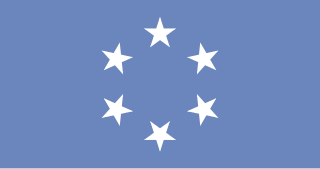
The Trust Territory of the Pacific Islands (TTPI) was a United Nations trust territory in Micronesia administered by the United States from 1947 to 1994. The Imperial Japanese South Seas Mandate had been seized by the US during the Pacific War, as Japan had administered the territory since the League of Nations gave Japan mandate over the area from Imperial Germany after World War I. However, in the 1930s, Japan left the League of Nations, and then invaded additional lands. During World War II, military control of the islands was disputed, but by the end of the war the islands had come under control of the Allies. The Trust Territory of the Pacific was created to administer the islands as part of the United States, while still under the auspices of the United Nations. Most of the island groups in the territory became independent states, with some degree of ties kept with the United States: the Federated States of Micronesia, Marshall Islands and Palau are today independent states in a Compact of Free Association with the US, while the Northern Mariana Islands remain under US jurisdiction, as an unincorporated territory and commonwealth.
The Pingelapese language is a Micronesian language native to Pingelap, an atoll belonging to the state of Pohnpei in the Federated States of Micronesia. This atoll is the homeland to the Pingelapese people, consisting of a three-square mile range of uninhabited small coral islets, Daekae and Sukora, and the inhabited islet, Pingelap. These islands partially make up the Caroline Islands.

The Federated States of Micronesia's National Police is the small national police force of the Federated States of Micronesia and is a division of the FSM Department of Justice.
Micronesian Americans are Americans who are descended from people of the Federated States of Micronesia. According to the 2020 US Census, a total of 21,596 residents self-identified as having origins in the country, which consists of four states. More than half of these residents identified their origin as Chuuk State (12,464) with the rest as follows: 4,918 people from Pohnpei, 2,066 from Yap, and 2,148 people from Kosrae.

Lesbian, gay, bisexual, and transgender (LGBT) people in the Dominican Republic do not possess the same legal protections as non-LGBT residents, and face social challenges that are not experienced by other people. While the Dominican Criminal Code does not expressly prohibit same-sex sexual relations or cross-dressing, it also does not address discrimination or harassment on the account of sexual orientation or gender identity, nor does it recognize same-sex unions in any form, whether it be marriage or partnerships. Households headed by same-sex couples are also not eligible for any of the same rights given to opposite-sex married couples, as same-sex marriage is constitutionally banned in the country.

Oceania is, like other regions, quite diverse in its laws regarding LGBT rights. This ranges from significant rights, including same-sex marriage – granted to the LGBT+ community in New Zealand, Australia, Guam, Hawaii, Easter Island, Northern Mariana Islands, Wallis and Futuna, New Caledonia, French Polynesia and the Pitcairn Islands – to remaining criminal penalties for homosexual activity in six countries and one territory. Although acceptance is growing across the Pacific, violence and social stigma remain issues for LGBT+ communities. This also leads to problems with healthcare, including access to HIV treatment in countries such as Papua New Guinea and the Solomon Islands where homosexuality is criminalised.
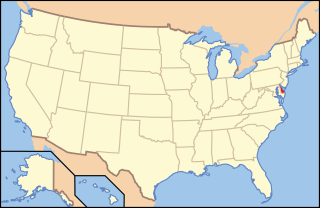
Lesbian, gay, bisexual, and transgender (LGBT) people in the U.S. state of Delaware enjoy the same legal protections as non-LGBT people. Same-sex sexual activity has been legal in Delaware since January 1, 1973. On January 1, 2012, civil unions became available to same-sex couples, granting them the "rights, benefits, protections, and responsibilities" of married persons. Delaware legalized same-sex marriage on July 1, 2013.

Lesbian, gay, bisexual, and transgender (LGBT) people in Paraguay face legal challenges not experienced by non-LGBT residents. Both male and female types of same-sex sexual activity are legal in Paraguay, but same-sex couples and households headed by same-sex couples are not eligible for all of the same legal protections available to opposite-sex married couples. Paraguay remains one of the few conservative countries in South America regarding LGBT rights.

Lesbian, gay, bisexual, and transgender (LGBT) people in the Marshall Islands may face legal challenges not experienced by non-LGBT residents. Same-sex sexual activity has been legal in the Marshall Islands since 2005, and discrimination on the basis of sexual orientation and gender identity has been outlawed in all areas since 2019. Despite this, households headed by same-sex couples are not eligible for the same legal protections available to opposite-sex married couples, as same-sex marriage and civil unions are not recognized.

Lesbian, gay, bisexual, and transgender (LGBT) persons in the U.S. state of Alaska may face some legal challenges not experienced by non-LGBT Alaskans. Since 1980, same-sex sexual conduct has been allowed, and same-sex couples can marry since October 2014. The state offers few legal protections against discrimination on the basis of sexual orientation and gender identity, leaving LGBT people vulnerable to discrimination in housing and public accommodations; however, the U.S. Supreme Court's ruling in Bostock v. Clayton County established that employment discrimination against LGBT people is illegal under federal law. In addition, four Alaskan cities, Anchorage, Juneau, Sitka and Ketchikan, representing about 46% of the state population, have passed discrimination protections for housing and public accommodations.
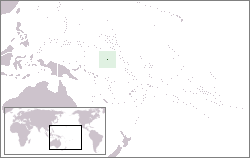
Lesbian, gay, bisexual, and transgender (LGBT) people living in Nauru may face legal and social challenges not experienced by non-LGBT residents. Same-sex sexual activity has been legal since May 2016, but there are no legal recognition of same-sex unions, or protections against discrimination in the workplace or the provision of goods and services.

LGBT employment discrimination in the United States is illegal under Title VII of the Civil Rights Act of 1964; employment discrimination on the basis of sexual orientation or gender identity is encompassed by the law's prohibition of employment discrimination on the basis of sex. Prior to the landmark cases Bostock v. Clayton County and R.G. & G.R. Harris Funeral Homes Inc. v. Equal Employment Opportunity Commission (2020), employment protections for LGBT people were patchwork; several states and localities explicitly prohibit harassment and bias in employment decisions on the basis of sexual orientation and/or gender identity, although some only cover public employees. Prior to the Bostock decision, the Equal Employment Opportunity Commission (EEOC) interpreted Title VII to cover LGBT employees; the EEOC determined that transgender employees were protected under Title VII in 2012, and extended the protection to encompass sexual orientation in 2015.

Women in the Federated States of Micronesia are women who live in or are from the Federated States of Micronesia, an independent sovereign island nation composed of four states. Thus, FSM women includes women from the States of Yap, Chuuk, Pohnpei and Kosrae.
The Federated States of Micronesia is a United States Associated State consisting of 4 states across the Western Pacific Ocean. The estimated population in 2015 was 105,216. Formerly the FSM was a part of the Trust Territory of the Pacific Islands (TTPI) but in 1979 formed its own constitutional government. FSM has a written constitution which took effect in 1979 and has been amended only once in 1990. By virtue of membership in the United Nations, the FSM abides by the UN Declaration of Human Rights (UDHR). Key human rights concerns in FSM include judicial delays, government corruption, discrimination against women, domestic violence and child neglect.
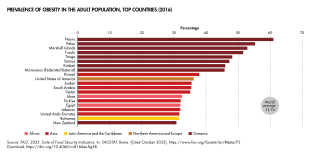
The Human Rights Measurement Initiative finds that the Federated States of Micronesia are fulfilling 94.9% of what it should be fulfilling for the right to health based on its level of income. When looking at the right to health with respect to children, the Federated States of Micronesia achieve 97.1% of what is expected based on their current income. In regards to the right to health amongst the adult population, the country achieves only 91.9% of what is expected based on the nation's level of income. The Federated States of Micronesia fall into the "good" category when evaluating the right to reproductive health because the nation is fulfilling only 95.8% of what the nation is expected to achieve based on the resources (income) it has available.

The Church of Jesus Christ of Latter-day Saints in the Federated States of Micronesia refers to the Church of Jesus Christ of Latter-day Saints and its members in the Federated States of Micronesia (FSM). The church's first known missionaries arrived on July 5, 1978. As of December 31, 2022, there were 5,966 members in 23 congregations in FSM. The LDS Church has congregations in every state in the FSM.
The Federated States of Micronesia does not recognise same-sex marriage, civil unions or any other form of recognition for same-sex couples.
